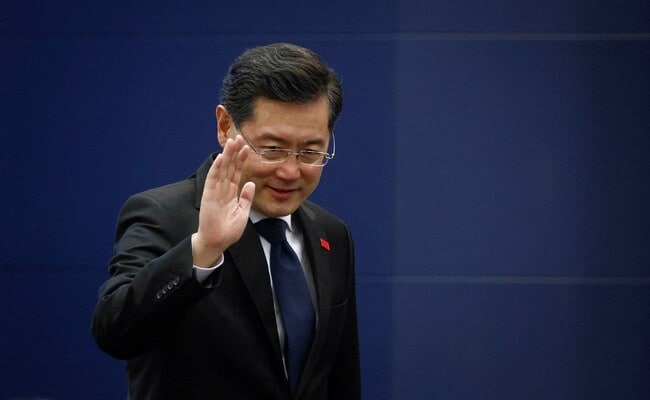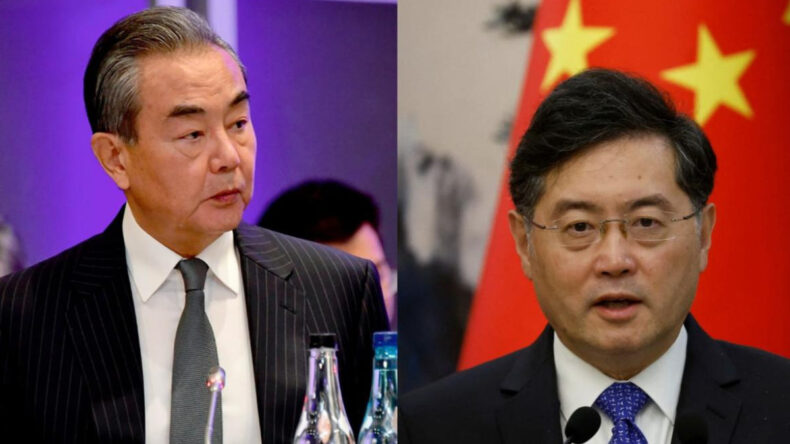In a surprising turn of events, China’s foreign minister, Qin Gang, has been removed from his position after an unexplained absence from public view since June. This decision has sparked weeks of speculation and discussions in domestic political circles, presenting one of the most significant crises for President Xi Jinping since his third term began. Wang Yi, a top foreign policy aide to President Xi, has been appointed as the new foreign minister. The secretive handling of Qin Gang’s absence and the subsequent dismissal have raised concerns about transparency and decision-making credibility within the Chinese government.

Mysterious Disappearance and Political Fallout
Qin Gang’s disappearance from public appearances since June 25 raised eyebrows and fueled rumors about his fate. Despite the Chinese Foreign Ministry attributing his absence to “health reasons” without providing further details, widespread speculations emerged regarding his potential removal or an official investigation. As a confidant of President Xi Jinping, Qin’s swift rise to becoming China’s foreign minister in December 2022 had been partially attributed to his close relationship with the president.
National People’s Congress Decision
At a special session of the National People’s Congress Standing Committee, following the convening of the Politburo, the decision to remove Qin Gang from his post was enacted.
President Xi Jinping authorized a presidential order to make the dismissal official. The announcement came without a specific reason for his removal, leaving the public in the dark about the exact circumstances surrounding his departure.
Wang Yi Reinstated as Foreign Minister
Stepping into the vacuum left by Qin Gang’s absence, Wang Yi, who outranks Qin and serves as President Xi’s top foreign policy aide, took on the responsibilities of the foreign minister over the past few weeks. Wang Yi’s appointment as the new foreign minister was voted upon by China’s top legislature during the session. His previous experience as foreign minister and leadership in the ruling Communist Party’s foreign policy positions made him a logical choice to replace Qin Gang.
Qin Gang’s Swift Rise and Diplomatic Journey
Before his appointment as foreign minister, Qin Gang had enjoyed a rapid ascent through China’s diplomatic ranks, becoming one of the country’s youngest foreign ministers in December 2022. He had previously served as China’s ambassador to the United States and worked in various capacities at the foreign ministry and Chinese Embassy in Britain. Notably, Qin had served as the foreign ministry spokesman between 2006 and 2014, earning a reputation for advocating China’s assertive foreign policy, popularly known as “wolf warrior” diplomacy.
Controversial Absence and Handling
The absence of clear information surrounding Qin Gang’s departure and the subsequent secretive handling by the Chinese government has drawn criticism both within and outside of China. The lack of transparency has led to calls for more openness in communicating the health and status of government officials, especially those in key positions like the foreign minister.
With Wang Yi back as foreign minister, the U.S. and China will be dealing with a familiar face as they attempt to navigate their troubled bilateral relationship. While Wang’s seniority and experience may provide stability, it is unlikely to lead to significant improvements in the tense relations between the two nations. The U.S.-China relationship remains strained due to a range of contentious issues, including Taiwan, trade, and technology.
The removal of Qin Gang as China’s foreign minister after his unexplained absence has left many questions unanswered and fueled debates about the Chinese government’s decision-making transparency. As Wang Yi returns to the foreign minister position, both domestic and international observers are keenly watching to see how the U.S.-China relationship unfolds under his leadership. The political crisis and mysterious circumstances surrounding Qin’s removal serve as a reminder of the complexities and uncertainties that underpin China’s foreign policy dynamics.













